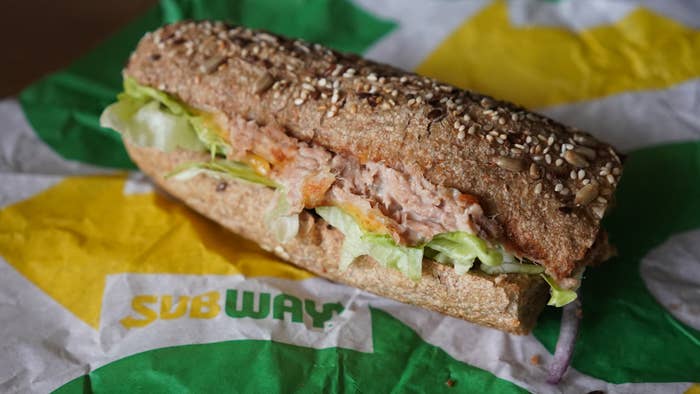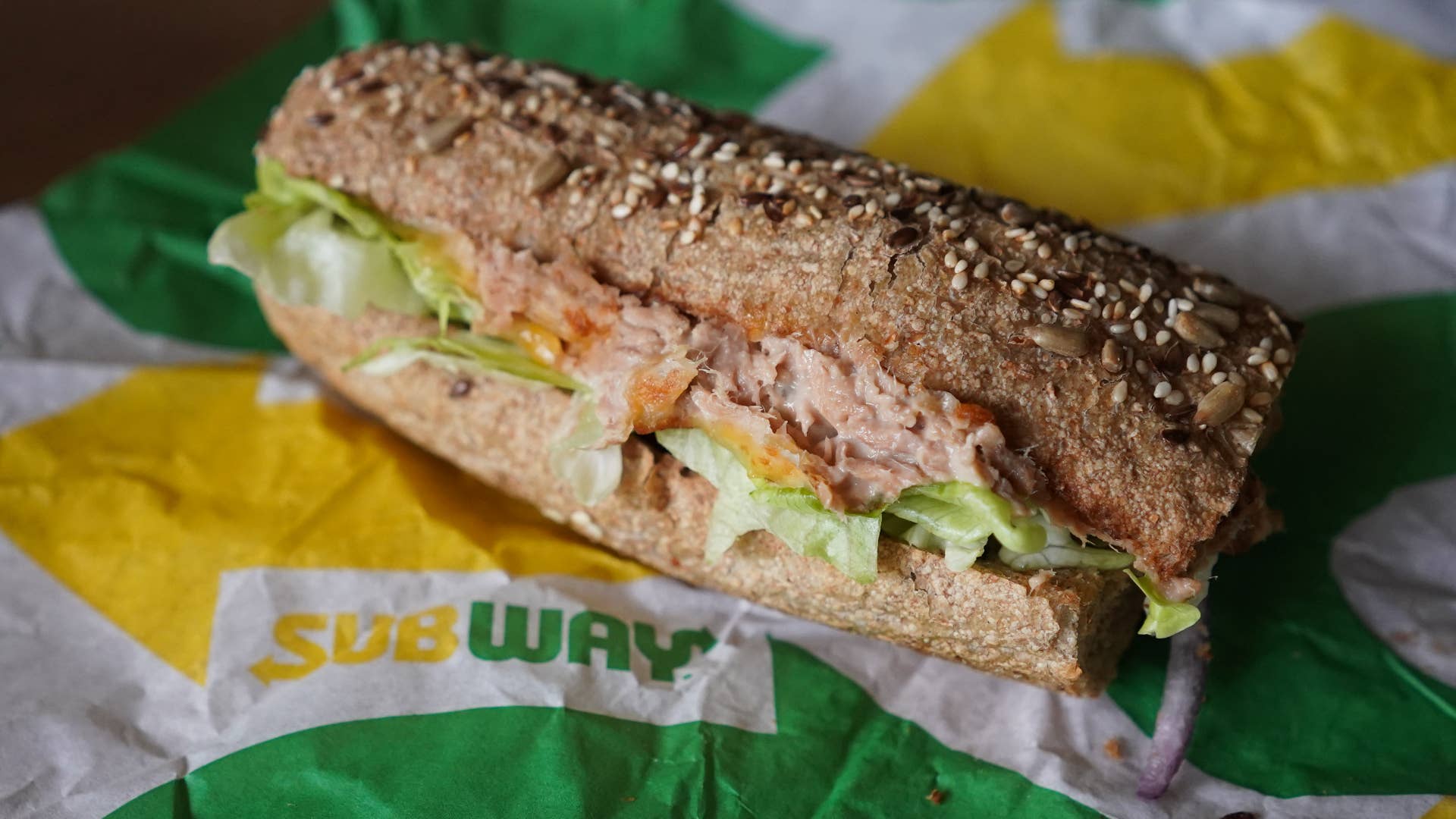
The New York Times published a report Sunday, which revealed that lab tests didn’t find “amplifiable tuna DNA” in Subway’s infamous tuna sandwich.
NYT submitted “60 inches worth of Subway tuna sandwiches” from three separate Los Angeles locations for lab analysis in wake of the lawsuit filed earlier this year alleging the sandwich chain was serving customers “a mixture of various concoctions that do not constitute tuna.” The suit claims that independent lab tests showed the company meant to “imitate” tuna’s appearance by blending together these unknown ingredients.
The study, commissioned by NYT, failed to not only identify tuna DNA, but the lab couldn’t even determine the origins of the fish in the provided sandwiches. “No amplifiable tuna DNA was present in the sample and so we obtained no amplification products from the DNA. Therefore, we cannot identify the species,” the results read.
“There’s two conclusions. One, it’s so heavily processed that whatever we could pull out, we couldn’t make an identification,” a lab spokesperson explained. “Or we got some and there’s just nothing there that’s tuna.” NYT spoke with a tuna expert who pointed out that the protein can be difficult to identify once it becomes broken down after being cooked.
Inside Edition conducted a similar test in February after purchasing sandwiches from three franchises in New York, and found that their samples contained tuna.
One Subway employee tried to disprove allegations by showing a package with “Flaked White Tuna in Brine” written on the box. Seafood experts suspect that the chain’s tuna dilemma may not actually have anything to do with them. “I don’t think a sandwich place would intentionally mislabel,” Dave Rudie, president of Catalina Offshore Products, told NYT. “They’re buying a can of tuna that says ‘tuna.’ If there’s any fraud in this case, it happened at the cannery.”
“The taste and quality of our tuna make it one of Subway’s most popular products and these baseless accusations threaten to damage our franchisees, small business owners who work tirelessly to uphold the high standards that Subway sets for all of its products, including its tuna,” a rep for Subway told Complex in response to the lawsuit. “Given the facts, the lawsuit constitutes a reckless and improper attack on Subway’s brand and goodwill, and on the livelihood of its California franchisees. Indeed, there is no basis in law or fact for the plaintiffs’ claims, which are frivolous and are being pursued without adequate investigation.”
In October 2020, Ireland’s Supreme Court ruled that the bread used in Subway sandwiches couldn’t legally be referred to as bread since it exceeded two percent of the total weight of flour used in the dough.


